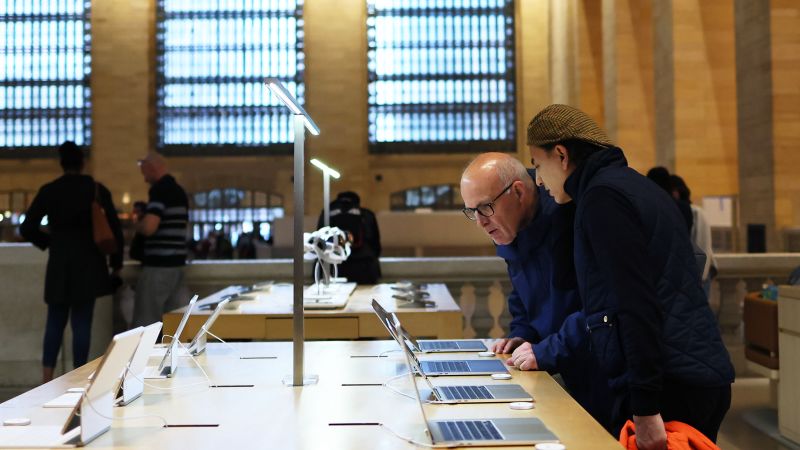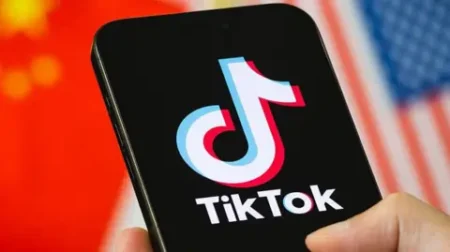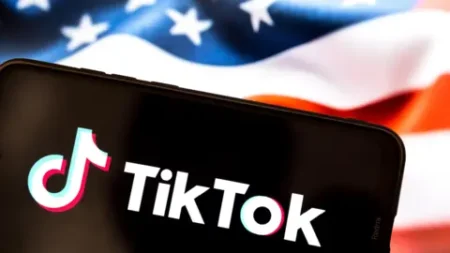In the realm of consumer electronics, the landscape has recently shifted due to the actions of the Trump administration regarding tariffs on imports from China. For individuals in the market for new smartphones and computers, a welcome reprieve has been announced. Specifically, a memo from President Donald Trump, dated April 11, has indicated that certain electronics, notably smartphones and computers, will not be affected by the reciprocal tariffs that have been levied on a broad variety of goods from China. This decision aims to alleviate the immediate financial burden consumers might face as the tariffs have skyrocketed to 145% on numerous other products.
While this temporary exemption from tariffs has sparked a short-term sigh of relief for buyers, there looms an uncertain future. Growing concerns are arising from the administration’s hints about introducing new tariffs targeting semiconductors—crucial components that are indispensable for the functioning of electronic devices. Although this latest exemption may stave off price increases for high-demand tech items, many everyday products—like charging cables and earbuds—remain unprotected from the draconian tariff measures, leaving consumers vulnerable to potential future price hikes.
This uncertainty creates a dilemma not only for shoppers trying to navigate this tumultuous pricing landscape but also for technology companies that are grappling with the need to adjust their supply chains to meet fluctuating demands and prices. The story of uncertainty was echoed by Francisco Jeronimo, an executive with the International Data Corporation, who noted that these conditions make planning extraordinarily challenging for businesses. With the exemption in place, it seems the best course of action for firms would be to maximize shipments while they can.
Indications suggest that some companies are taking steps to act rapidly on this window of opportunity. For example, Apple reported a significant surge in shipments from its India-based suppliers, with nearly $2 billion worth of iPhones arriving in the U.S. market in March, ahead of anticipated tariffs. This pattern follows a broader trend observed in statistics from Gartner, which documented a notable 12.6% growth in PC shipments in the US during the first quarter of 2025, attributed largely to companies rushing to stock their inventories.
While the tariff exemption is a boon for Apple, which derives a substantial portion of its revenue from iPhone sales, this victory is underscored by Trump’s concurrent acknowledgment that more tech tariffs are on the horizon. In a post on Truth Social, Trump affirmed that no products are “off the hook” concerning tariffs and that the newly designated exempted items would still fall under a 20% tariff for Chinese imports. The administrations’ latest move involves categorizing the products under “different tariff buckets” while conducting a comprehensive review of the electronics supply chain, thereby setting the stage for upcoming scrutiny on semiconductor imports.
From an economic standpoint, the ramifications of the tariff policies have rippled through the stock market, which has seen both declines and rebounds in recent weeks. Notably, after the announcement of a temporary pause in the reciprocal tariffs, there have been substantial gains observed in market indexes.
The delineations of tech products exempt from tariffs are specifically outlined. They include smartphones, computers (fondly referred to as “automatic data processing machines”), monitors, and storage devices along with their crucial internal components, such as integrated circuits and transistors. However, a myriad of other tech products has fallen outside of this protective umbrella, including accessories like USB charging cables, battery packs, and headphones—all of which could face increased costs.
Both experts and analysts underscore the uncertain nature of this landscape, leading to a “gray area” for products that do not neatly fit into exemption categories. As pointed out by Dave Marcotte from Kantar, the categorization process for devices and accessories could complicate classifications during customs inspections, potentially leading to varying outcomes for consumers.
As the situation develops, the looming threat of new tariffs, particularly on semiconductors, highlights the inherent instability within the tech market. Companies have been wrestling with the challenges presented by these tariffs, including how they affect supply chain logistics and pricing strategies. As American consumers prepare for potential price increases on everyday tech items, industry leaders are compelled to reassess their production and sourcing strategies, with a potential pivot to regions beyond China emerging as a possible corrective measure in this complex global market.
The pressing questions now focus on whether companies can successfully navigate these turbulent waters to retain consumer trust and maintain a competitive edge in a market increasingly defined by unpredictability.











